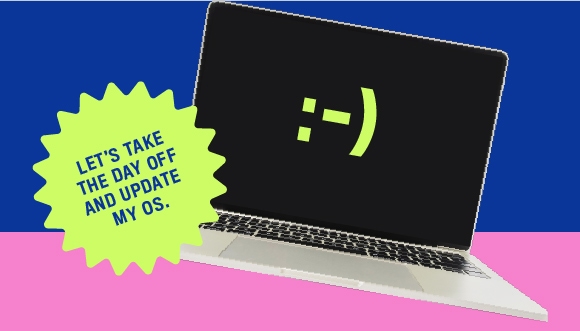For many, our desktop and laptop computers were our first digital best friends. They are our unwaveringly, faithful, do-it-all devices we rely on when our other smart gadgets aren’t up for the task.
Imagine finishing your paperwork, completing a spreadsheet, photoshopping an image, or trying to multi-task all of these without the help of our computers. Not fun.
Our computers are far from obsolete, and we rely on them much more than we might think. That’s why it’s important to keep them, and the information on them, safe from cyber threats.
Here’s what you need to know about computer cyber security.
Common threats against your computer
Sometimes, you just need to download a file. That’s where our computers can really come in handy.
Whether it’s a new browser, an online document, stock photos of cats, or a new app for work, downloading content online can make your computer experience much richer.
But the power of downloading also brings a lot of risks. Files from unsafe sources can install dangerous malware on your system. Because malicious files are disguised to look legitimate, you need to make sure you’re downloading files and software directly from a trustworthy source.
This is an even bigger issue in 2020, as many Canadians are working from home (and spending more time online shopping and video conferencing with friends and family) to help combat COVID-19. That means it’s important to make your home more cyber secure.
Connecting to unsecured public Wi-Fi networks can also pose risks to your laptop. Working in a public space like a library or a coffee shop can be appealing, but it’s important to know the risks of using public networks, particularly if you’re logging into sensitive accounts or working with sensitive information.
Fraudulent Wi-Fi networks can make your device vulnerable to hackers trying to steal your information. If you use public Wi-Fi often, consider purchasing a VPN to keep your data safe.
Another common tactic cyber criminals use against computer users is phishing emails. These may seem like emails from trusted or legitimate companies when, in fact, they are actually malicious.
Cyber criminals use phishing emails to try and compromise your computer and your information by asking you to “authenticate an account”, “log in to an account”, or “claim a prize”. Sometimes, these emails are threatening.
Some phishing emails include harmful links that can lead you to downloading malware onto your computer. If an email looks suspicious or unsolicited, the best thing to do is delete it.
How to protect your computer
Keep your software up to date and patched
Software updates may seem inconvenient at times, but they are an so important for patching security gaps and protecting against hackers.
Software updates often contain security patches and bug fixes that are necessary to protect your device.
Update your software as soon as you’re prompted. If you don’t have time, choose to update software automatically, or remind yourself to run the update at the end of your workday or when you’re done using your device. You can also change your settings to run updates overnight, so your day won’t be disrupted.
Enable firewall security
Your firewall acts like a guardian for your computer Your firewall’s job is to monitor, identify and block any unwanted traffic. Your operating system likely has a firewall pre-installed, but to be safe, check your settings to make sure it’s turned on.
Use anti-virus software
Anti-virus software is exactly what it sounds like — software that protects your device from malware and other threats by scanning your computer for suspicious activity and removing it.
Many operating systems come with anti-virus software installed. Check your settings to make sure one is running on your system.
There are also many options for paid anti-virus software that may offer extra protection – just make sure you purchase one from a reputable source.
Conclusion
Our computers are like our amazing childhood best friends — familiar, resilient, and dependable. They allow us to complete tasks that many of our smart devices aren’t adept at handling, which makes it important to secure them against cyber attacks.
By educating yourself on computer security and giving your device the TLC it deserves, you’ll allow this friendship to thrive for years to come.